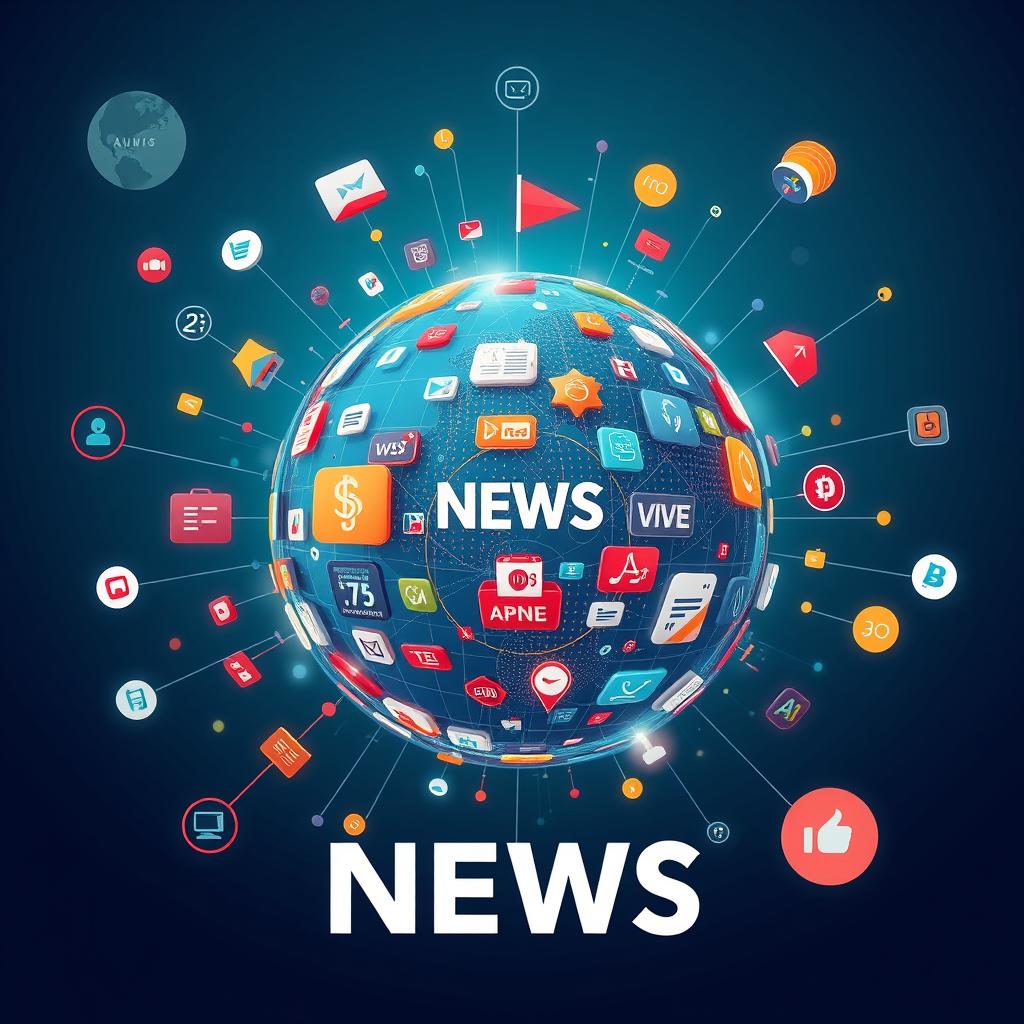* Stay Informed: A Comprehensive Guide to Reliable News and Information Consumption**
**Introduction**
In today’s fast-paced world, staying updated on current events is more important than ever. Whether it’s local happenings or global developments, access to accurate and timely information empowers individuals to make informed decisions. This article will guide you through the importance of staying updated, how to identify reliable news sources, tools for aggregating news, balancing your information intake, and avoiding misinformation.
—
**Importance of Staying Updated**
Being well-informed isn’t just about curiosity—it’s essential for personal and professional growth.
– **Personal Development:** Understanding global trends helps broaden perspectives and fosters empathy.
– **Professional Advantages:** Knowledge of industry changes and economic shifts can enhance career opportunities.
– **Civic Responsibility:** Staying informed allows citizens to participate actively in democracy by making educated choices during elections and public discourse.
Staying updated ensures you remain relevant in an ever-evolving world.
—
**Reliable News Sources (National & International)**
Finding trustworthy news outlets is crucial to obtaining accurate information.
**National News Sources**
For domestic updates, consider these reputable platforms:
– *The New York Times* – Known for investigative journalism and comprehensive coverage.
– *BBC News* – Offers balanced reporting with a focus on detail.
– *NPR* – Provides insightful analysis and radio-style storytelling.
**International News Sources**
To stay abreast of global affairs, turn to:
– *Al Jazeera* – Focuses on underreported stories from around the globe.
– *Reuters* – Renowned for its unbiased wire service reports.
– *The Economist* – Delivers in-depth analyses of politics, business, and culture worldwide.
Always cross-check multiple sources to ensure accuracy.
—
**Tools for News Aggregation**
With so much content available, organizing your news consumption can be overwhelming. Fortunately, several tools simplify this process.
**Popular News Aggregators**
– **Google News**: Customizable feeds based on topics and preferences.
– **Flipboard**: Combines articles into magazine-like formats for easy reading.
– **Feedly**: Allows users to follow specific RSS feeds and organize them efficiently.
**Benefits of Using Aggregators**
– Saves time by consolidating information in one place.
– Helps avoid echo chambers by exposing you to diverse viewpoints.
– Enables personalized content delivery tailored to your interests.
Choose a tool that aligns with your needs and enhances your daily routine.
—
**Balancing Information Consumption**
While staying informed is vital, excessive exposure to news can lead to stress and fatigue. Here’s how to strike a balance:
**Set Boundaries**
– Limit daily news intake to specific times, such as mornings or evenings.
– Avoid constant notifications that disrupt productivity.
**Focus on Quality Over Quantity**
– Prioritize depth over breadth; read detailed articles instead of skimming headlines.
– Engage with content that adds value rather than creating anxiety.
By managing your consumption habits, you maintain mental clarity while staying informed.
—
**Avoiding Misinformation & Fake News**
Misinformation spreads rapidly online, often causing confusion and harm. Follow these tips to protect yourself:
**Verify Before Sharing**
– Check if the source is credible and widely recognized.
– Look for corroborating evidence from other established outlets.
**Recognize Red Flags**
– Be wary of sensational headlines designed to provoke emotions.
– Avoid sites with poor design or numerous grammatical errors.
**Fact-Checking Resources**
– Use websites like Snopes, FactCheck.org, or PolitiFact to validate claims.
– Educate yourself on common tactics used by fake news creators.
Critical thinking and skepticism are key to navigating the digital landscape safely.
—
**Call to Action**
Staying updated is not only a responsibility but also an opportunity to grow intellectually and contribute positively to society. By relying on trusted sources, using effective aggregation tools, balancing your intake, and steering clear of misinformation, you can build a sustainable news consumption habit. Start implementing these strategies today and take control of your information diet! If you found this guide helpful, share it with others who might benefit from it. Together, we can foster a more informed and connected community.







